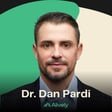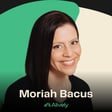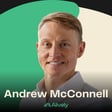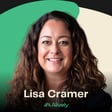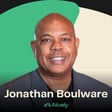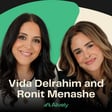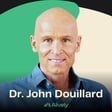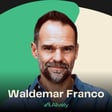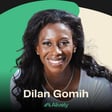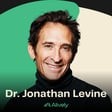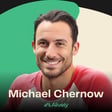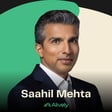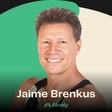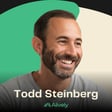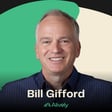
Wearable Tech: Track And Transform Your Health with Dr. Torkil Færø - E31
What if you could see what stress, a lack of sleep and unhealthy eating habits is really doing to you? What if you know where, what and how to change, in order to live a longer, more vital life?
In today's fast-paced world, gauging your own health and stress levels can be surprisingly difficult. You might believe your daily routines are adequate, yet without concrete data, it's impossible to understand the true impact on your well-being. Wearable technology offers a breakthrough, transforming the way we manage health by providing real-time insights into our physiological state. This episode delves into the power of wearables in bridging the gap between guesswork and precise health management. Learn how these devices can reveal hidden stressors, optimise sleep, and empower you to make informed lifestyle choices, ultimately leading to a more harmonious and healthier life.
Dr. Torkil Færø, a physician and author, is renowned for his best-selling book "The Pulse Cure," a first-of-its kind, to integrate lifestyle strategies with wearable technology. With a personal journey catapulted by his father's early passing and a mirror moment of self-reflection, Dr. Færø turned his professional expertise inward to overhaul his lifestyle, shedding 40 pounds and optimizing his own health. His pragmatic approach emphasises the 80/20 principle, advocating simple, effective habits for significant health gains. Known for his evidence-backed perspectives, Dr. Færø's work resonates with both his peers and a broader audience seeking real health solutions. As a physician slash author, he continues to inspire a proactive approach to health and longevity, underscoring the potential of wearable devices to monitor and enhance personal well-being.
“Every instrument is so much more than your own guesswork. Your own guesswork is really poor.” - Dr. Torkil Færø
In this episode you will learn:
- How Dr. Færø examined his ancestry and lifestyle to embark on his personal health journey, leading to a drastic shift in habits.
- The concept of healthspan and its significance for living a life free from health-related constraints.
- Insights into Dr. Færø's routine, including the impact of cutting out alcohol and integrating simple exercises to boost overall health.
- The role and benefits of wearables in monitoring health and stress levels, offering a modern approach to managing wellbeing.
- The crucial role of nutrition, including protein and fasting, in optimising health and lifespan according to Dr. Færø.
- Practical strategies for managing stress and improving sleep through techniques like controlled breathing and maintaining a consistent routine.
Resources
- Connect with Dr. Færo on Instagram: https://www.instagram.com/dr.torkil
- Find out more about his bestseller, ‘The Pulse Cure’: https://thepulsecure.com/
This podcast was produced by the team at Zapods Podcast Agency:
https://www.zapods.com
Find the products, practices, and routines discussed on the Alively website:
https://alively.com/

